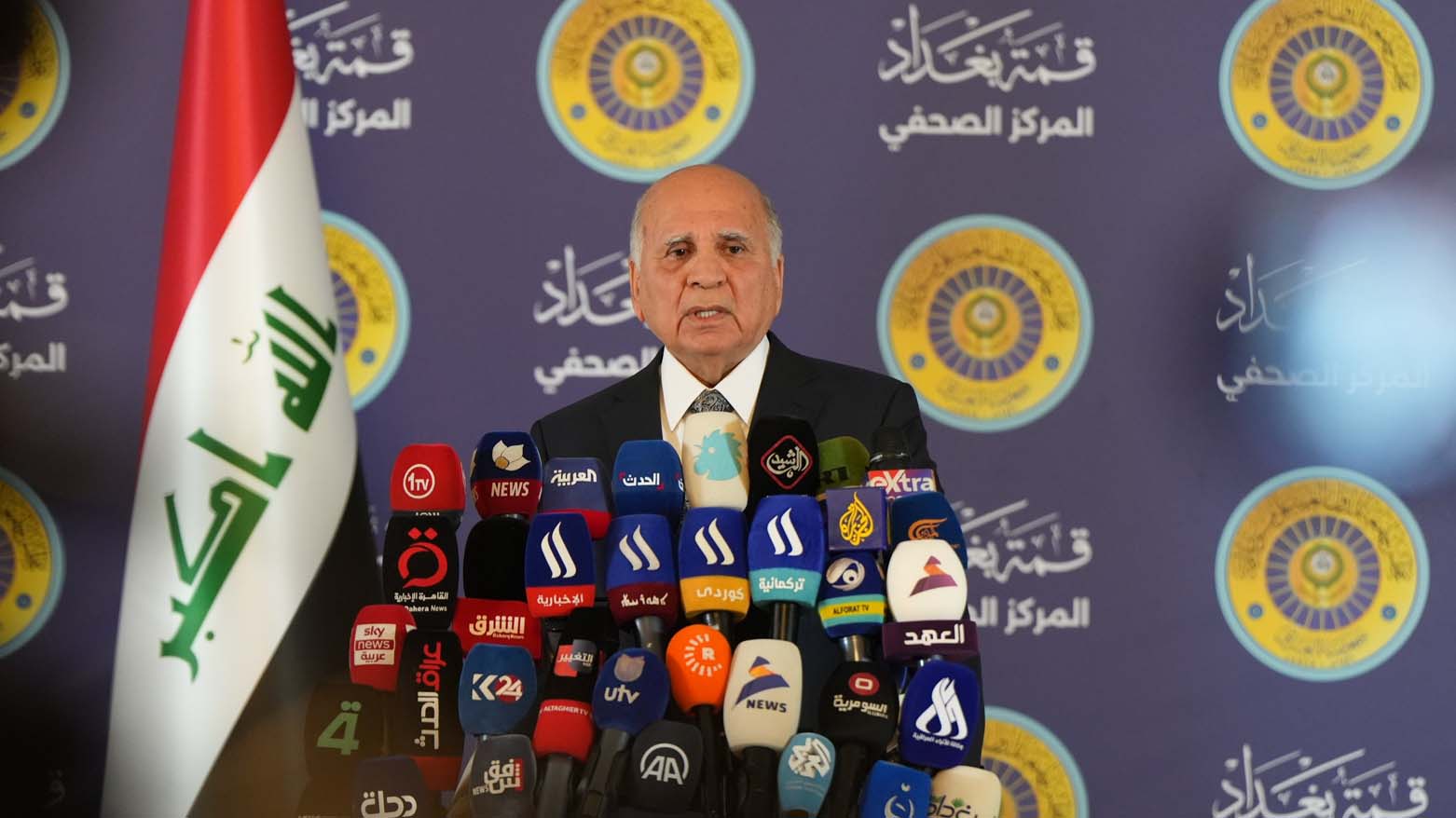Iraqi FM: Baghdad, Kurdistan Region, and Türkiye Coordinating Response to PKK Disarmament Decision
“We see this move not just as an internal decision by the PKK but as an opportunity to achieve lasting peace,” said Fouad Hussein.

By Ahora Qadi
ERBIL (Kurdistan24) – Iraqi Foreign Minister Fouad Hussein announced on Wednesday that the Kurdistan Region, Baghdad, and Türkiye are in close coordination regarding the Kurdistan Workers’ Party’s (PKK) recent decision to disarm and dissolve its organizational structure.
In a press conference held on Wednesday, Hussein said that Iraq “welcomes the PKK’s announcement to lay down arms,” describing it as a step toward de-escalation and a possible gateway to stability across the region.
“Iraq, the Kurdistan Region, and Türkiye are aligned in assessing the implications of this decision,” Hussein stated, adding that several ideas are currently under discussion to manage the process collaboratively.
Path Toward Peace
Hussein expressed hope that the disarmament initiative could lead to broader regional reconciliation, emphasizing the importance of sustained peace in Türkiye and throughout the region.
“We see this move not just as an internal decision by the PKK but as an opportunity to achieve lasting peace,” he noted.
The remarks come two days after the PKK released the outcomes of its 12th Congress, held between May 5 and 7, declaring its intent to dismantle its military structure and cease all armed operations conducted under its name.
PKK’s Historic Shift
In its statement issued on May 12, the PKK said the decision to dissolve its organizational body and end its armed struggle was made under the guidance of imprisoned party leader Abdullah Ocalan. The party declared its mission complete, asserting that the Kurdish issue had reached a solvable stage through democratic politics rather than armed confrontation.
Hussein's comments reflect growing diplomatic momentum around the decision, as multiple regional stakeholders—including Ankara and Erbil—monitor how the group will implement its pledge and what new security arrangements may emerge in its aftermath.